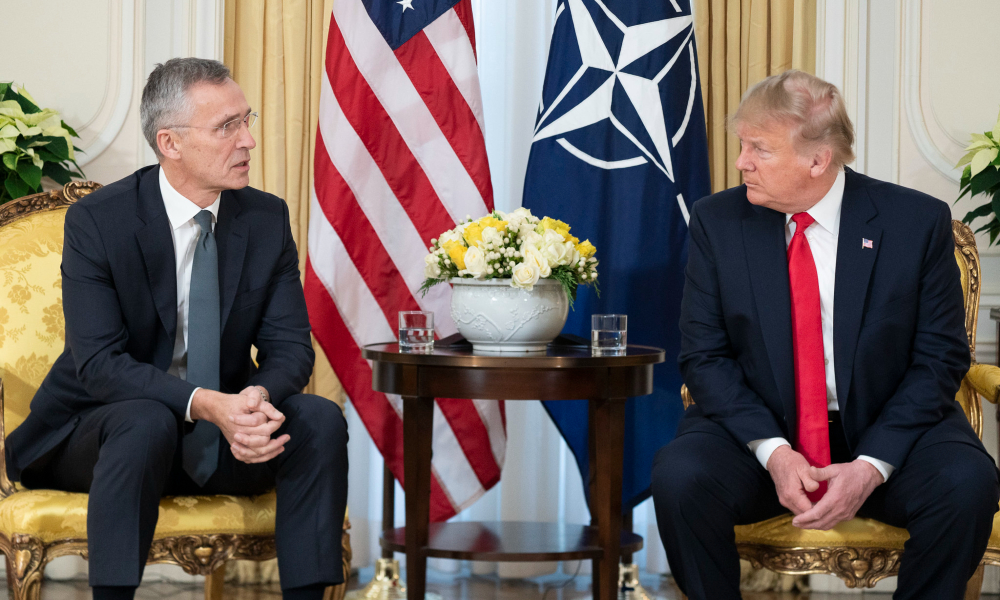Today's Headlines and Commentary
Published by The Lawfare Institute
in Cooperation With

It's actually a big week for CFIUS (at least in the public square): the most recent controversial transaction before the committee, Japanese telecommunications firm SoftBank's acquisition of a majority interest in Sprint-Nextel, has been blessed. The deal now must undergo the Federal Communications Commission's own review process, and then be approved by shareholders. Here's Brendan Sasso of The Hill and the Times.
Today's Times editorial says the SoftBank-Sprint transaction would be a boon for American mobile users.
From foreign acquisitions to murky payments: the Times's Nicole Perlroth covers Liberty Reserve, an online payment systems company facing money laundering charges. Part of this seemingly has to do with Liberty Reserve's approach to anonymity: according to Perlroth, users need not submit personal information in order to make payments. Contrast this with the policy of online payment house Bitcoin, whose users aren't quite as anonymous as those of Liberty Reserve. But Bitcoin-ers nevertheless might be able to proceed on a more anonymous basis in the future, through the addition of a newfangled plugin. The latter would make Bitcoin transactions untraceable. In a separate article, she writes about some other anonymous online payment schemes. The man charged in connection with hacking group Lulzsec's breaches of Stratfor Global Intelligence Services has pled guilty. The defendant acknowledged his connection to Anonymous as well, write the Times's Nicole Perlroth and Colin Moynihan. Reuters tells us that China is conducting a "digital" technology military exercise---its first, according to the Chinese government. The Hill's Jennifer Martinez quotes White House Press Secretary Jay Carney on recent high-level meetings between Administration officials and the Chinese government. According to Carney (as reported by The Hill), national security adviser Tom Donilon "made clear that the United States will do all it must to protect our national networks, our critical infrastructure and our valuable public and private sector property." Another government agency wants to dip its feet in the cybersecurity pond: New York State's Department of Financial Services has requested information about cyberattacks from regulated health insurance companies. Here's the Hartford Courant with more. On to the DOJ/reporter leaks controversy: AG Eric Holder is contending with the media now. Charlie Savage and Jonathan Weisman write on the latest developments in the Times, while Jordy Yager of The Hill says that Holder has meetings on the books with the bureau chiefs of major news outlets. The subject will be the Department's media subpoena policies. And yes, it's official: President Obama will nominate James B. Comey to lead the FBI. Here's Sari Horwitz and Peter Finn with more details in the Post. NPR's Mark Memmott has Comey's background. Ben endorsed Mr. Comey earlier today. Ari Shapiro of NPR reports on All Things Considered about President Obama's campaign to rewrite the AUMF, and the Washington Post editorial board discusses the President's remarks on that topic last week. (Jack gets a mention, and the online version links to work by Bobby, Ben, Jack, and Matt.) Wired's Spencer Ackerman suggests that yesterday's killing of the deputy commander of the Pakistani Taliban might have violated the Obama Adminstration's stated criteria for drone strikes. Ackerman wonders whether the fellow truly posed a "continuing, imminent threat to U.S. persons"---as he must, under rules announced by the White House last week. Speaking of drones, the Stimson Center is launching a new task force on drone policy, which will be lead by Retired Army General John P. Abizaid. Here's its press release. Our John Bellinger, Georgetown Law's Rosa Brooks and MIT's Missy Cummings also will serve on the task force. House Oversight Committee Chairman Darrell Issa has issued subpoenas seeking all the executive branch's communications about Benghazi talking points. Here's the press release from the Committee. More somber news from Syria: the AP tells us that the Assad regime says it has received its first shipment of Russian anti-aircraft missiles. Over in Afghanistan, insurgents wearing suicide vests attacked the Red Cross office in the Panjshir Valley. The Journal says at least one person is dead. According to the Times, this marks the first attack on a Red Cross facility in Afghanistan in its 30+ years of operations there. Meanwhile, the Afghan National Directorate of Security (read: intelligence agency) says it thwarted an attack by the Haqqani network in Kabul, and confiscated a large weapons cache. Here's the BBC News story with more. And also on the topic of Afghanistan, Staff Sgt. Robert Bales will plead guilty next week to the March 2012 killing of 16 Afghan civilians. Bales's attorney won't confirm whether the plea agreement will take the death penalty off the table, though, according to James Dao of the Times. The UN's special rapporteur on extrajudicial, summary or arbitrary executions, Christof Heyns, went before the Human Rights Council in Geneva. He advocated for a moratorium on the development and use of armed robots. Here's the Times story on his remarks. Last week's print edition of The Economist has two interesting pieces. The first concerns the government practice of pressuring foreign weapons dealers to supplement their sales. In addition to sending guns and missiles and other munitions, the companies agree to invest in local projects. The apparent goal is to make the buyer country whole: cash leaves the country for the weapons, but comes in for the projects. Secondly, The Economist discusses recent developments in quantum mechanics and cryptography, and their implications for eavesdropping. In short, it may become altogether impossible to intercept communications that utilize certain encryption methods. Sari Horwitz and Peter Finn update us in the Post on the Boston bombing investigation: the Chechen who was shot and killed last week by an FBI agent was not armed. In the ICTY, Six Bosnian Croats have been convicted of persecuting and murdering Muslims during the 1992-1995 war in Bosnia. Here's Marlise Simons of the Times. New York City Mayor Mike Bloomberg was sent a letter that has tested positive for ricin. Ditto the leader of a Bloomberg-financed gun control organization. Joseph Goldstein writes in the Times that the letters were postmarked in Louisiana. FEMA is promoting its latest information sharing tool, which sends emergency messages via wireless networks. Here's Jane Levere describing the alert system in the Times. In the New York Times, Donald G. McNeil Jr. discusses the global response to two concerning viruses originating in China and the Middle East. The New York Daily News profiles a former GTMO guard who is now a devout Muslim and outspoken detainee rights activist. Folks in the D.C. metro area will be excited to know that the Corcoran Gallery is opening an installation by British artist James Bridle. His subject? Drones. The installation will run from June 19 to July 7. Here's the DCist blog's story, and the Gallery's webpage. For more interesting law and security-related articles, follow us on Twitter and check out the Lawfare News Feed, visit the Georgetown Center on National Security and the Law’s Security Law Brief, Syracuse’s Institute for National Security & Counterterrorism’s newsroll and blog, and Fordham Law’s Center on National Security’s Morning Brief and Cyber Brief. Email Raffaela Wakeman and Ritika Singh noteworthy articles to include, visit the Lawfare Events Calendar for upcoming national security events, and check out relevant job openings at the Lawfare Job Board.




